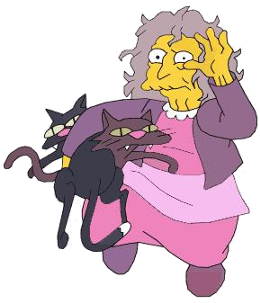Developing Your Addicted Character ~ The Gambler
 |
| health.ninemsn.com.au/ |
 |
| Suggested reading |
A gambling addiction, like many issues, is complex, with the addict prone to so many underlying issues and personality disorders. A writer just can't say, this is a gambling addict. This is a sex addict. This is a video game addict. This is a cell phone addict.
In every case, the addiction is the character's problem everyone sees. Like an iceberg, the addiction is what shows above the surface. What isn't so obvious are the underlying personality problems. Yet these problems drive the addictive behavior, drive your character and drive your story. Beyond gambling, how does the character behave? What is their self image? How do they treat others? There is no one correct answer.
People who cannot keep their gambling habits in check often suffer from personality disorders says Meredith Brown of Australia's Monash University. Problem gambling creates a multitude of intra-personal, interpersonal and social difficulties for the roughly 2.3 percent of the population internationally suffer from a gambling addiction. Of a population of 316 million in the U.S., that means an estimated 727,000 men and women suffer some degree of a gambling addiction with all of the underlying baggage as well.
Brown and her colleagues reviewed existing research to establish patterns and factors that link problem gambling and various personality disorders. They found that people with gambling problems share similar characteristics to people with antisocial, borderline, histrionic and narcissistic personality disorders. In particular, Borderline Personality Disorder (BPD) is found more among people with gambling problems than those who can control their gambling. This personality disorder is associated with unstable interpersonal relationships and self-image, and marked impulsivity.
* * * * *
About these personality disorders
First a word of caution. This discussion of gambling and associated personality problems is intended to help you, the author or screenwriter, develop a better understanding of the issues someone suffering a gambling addiction faces in order that you develop a more accurate and believable background and personality for these characters, whether primary or supporting in your story.
On a personal level, if you feel you see some of these characteristics in yourself or someone in your life, resist the very natural impulse to diagnose. These disorders are very complex, and require years of supervised training and experience to understand, diagnose and treat. If you have any questions or concerns, please see a professional, whether a social worker, psychologist or psychiatrist to discuss your concerns.
The personality disorders most often associated with gambling according to Doctor Brown are characterized by dramatic, overly emotional or unpredictable thinking or behavior. They include antisocial personality disorder, borderline personality disorder, histrionic personality disorder and narcissistic personality disorder.
Antisocial personality disorder
- Disregard for others' needs or feelings
- Persistent lying, stealing, using aliases, conning others
- Recurring problems with the law
- Repeated violation of the rights of others
- Aggressive, often violent behavior
- Disregard for the safety of self or others
- Impulsive behavior
- Consistently irresponsible
- Lack of remorse for behavior
- Impulsive and risky behavior, such as having unsafe sex, gambling or binge eating
- Unstable or fragile self-image
- Unstable and intense relationships
- Up and down moods, often as a reaction to interpersonal stress
- Suicidal behavior or threats of self-injury
- Intense fear of being alone or abandoned
- Ongoing feelings of emptiness
- Frequent, intense displays of anger
- Stress-related paranoia that comes and goes
- Constantly seeking attention
- Excessively emotional, dramatic or sexually provocative to gain attention
- Speaks dramatically with strong opinions, but few facts or details to back them up
- Easily influenced by others
- Shallow, rapidly changing emotions
- Excessive concern with physical appearance
- Thinks relationships with others are closer than they really are
- Belief that you're special and more important than others
- Fantasies about power, success and attractiveness
- Failure to recognize others' needs and feelings
- Exaggeration of achievements or talents
- Expectation of constant praise and admiration
- Arrogance
- Unreasonable expectations of favors and advantages, often taking advantage of others
- Envy of others or belief that others envy you
This information is provided for use in developing fictional characters in your novel or screenplay, and is not intended to be a diagnostic or treatment guide. If you have any questions about the disorders discussed here, please see a licensed mental health professional in your community.
* * * * *
Things that cause gambling problems also cause personality disorder
The review of Doctor Brown and staff shows that the same biological and social factors are at play in causing problem gambling and personality disorders. These include
- poor parental relationships during childhood,
- possible abuse,
- difficulty in controlling emotions,
- substance abuse,
- depression and
- anxiety disorders.
- socially isolated,
- have problematic relationships with their peers,
- lower self-esteem and
- feelings of hopelessness and dissociation. They are also
- emotionally more vulnerable, and
- struggle with anger issues and feelings of shame.
Related articles:
- Are We Addicted to Our Cell Phones?
- The Brain Function Abnormalities of Gambling Addicts
- Brain structure predicts risky behavior
- Excessive Facebook Use Can Damage Relationships
- Internet Addicts Often Suffer Depression and Other Disorders
- Too Much Texting Can Disconnect Couples
* * * * *
Story Source: Meredith Brown, J. Sabura Allen, Nicki A. Dowling. The Application of an Etiological Model of Personality Disorders to Problem Gambling. Journal of Gambling Studies, 2014.
After being accused of switching the dice, Tea Cake was stabbed in the back (literally) by his gambling partner. slot machine svenska
ReplyDelete